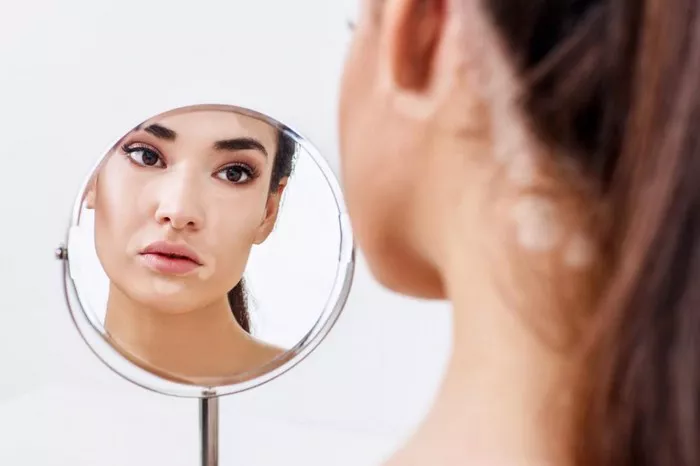Vitiligo is a skin condition that causes the loss of pigmentation, resulting in white patches on the skin. This condition can affect any part of the body, including the face, hands, and areas with hair. While vitiligo is not harmful or contagious, it can have a significant impact on a person’s appearance and self-esteem. Many treatments can help manage vitiligo, but finding the right medicine is essential. This article explores the best vitiligo medicines available, their effectiveness, and potential side effects.
Understanding Vitiligo
Vitiligo occurs when melanocytes, the cells responsible for producing skin pigment, are destroyed. The exact cause of this destruction is not fully understood. However, several factors may contribute, including:
Autoimmune Response: The immune system may mistakenly attack melanocytes.
Genetic Factors: Family history can play a role in developing vitiligo.
Environmental Triggers: Stress, sunburn, and exposure to certain chemicals may trigger the condition.
Types of Vitiligo
There are two main types of vitiligo:
Generalized Vitiligo: This is the most common type. It affects various body parts and usually progresses over time.
Localized Vitiligo: This type affects specific areas of the body and may remain stable for years.
Importance of Treatment
While there is no cure for vitiligo, treatment can help restore skin color or improve the appearance of affected areas. The choice of treatment often depends on:
Extent of the condition: How much skin is affected.
Location of patches: Patches on visible areas may require more aggressive treatment.
Patient preference: Some may prefer topical treatments over systemic medications.
SEE ALSO: What are the Early Signs of Vitiligo
Types of Medicines for Vitiligo
1. Topical Corticosteroids
Topical corticosteroids are commonly prescribed for vitiligo. These creams and ointments help reduce inflammation and can stimulate pigment production in the skin.
Effectiveness: They are most effective for people with localized vitiligo. Results may take several months to appear.
Usage: Typically applied twice daily to the affected areas.
Side Effects: Long-term use can lead to skin thinning, stretch marks, and changes in skin color.
2. Topical Calcineurin Inhibitors
Topical calcineurin inhibitors like tacrolimus and pimecrolimus are alternatives to corticosteroids. These medications work by modulating the immune response and reducing inflammation.
Effectiveness: Suitable for sensitive areas like the face and genitals. They can be effective for localized vitiligo.
Usage: Apply twice daily to affected areas.
Side Effects: May cause burning or itching at the application site. Long-term safety is still under investigation.
3. Phototherapy
Phototherapy is a treatment that involves exposing the skin to ultraviolet (UV) light. Two main types are:
Narrowband UVB Therapy: This is the most common type of phototherapy for vitiligo. It uses a specific wavelength of UV light that is effective for repigmentation.
- Effectiveness: Works well for generalized vitiligo, particularly in early stages.
- Sessions: Treatment usually requires two to three sessions per week.
- Side Effects: Risks include sunburn, skin aging, and an increased risk of skin cancer.
PUVA Therapy: This treatment combines a medication called psoralen with UVA light exposure.
- Effectiveness: Generally more effective than narrowband UVB, especially for extensive vitiligo.
- Sessions: Usually done 1 to 2 times a week.
- Side Effects: Higher risk of skin cancer and other side effects associated with psoralen.
4. Systemic Medications
In some cases, systemic medications may be necessary. These drugs affect the entire body and may be prescribed for extensive vitiligo.
Corticosteroids: Oral corticosteroids can be used for rapid repigmentation. However, they have significant side effects and are usually only prescribed for short-term use.
Immunosuppressants: Medications like azathioprine and methotrexate can help manage vitiligo by suppressing the immune system.
- Effectiveness: May be beneficial for severe cases.
- Side Effects: Increased risk of infections and other serious health issues.
5. Depigmentation Therapy
For individuals with extensive vitiligo, depigmentation therapy can be an option. This process involves lightening the remaining pigmented skin to match the depigmented areas.
Effectiveness: Suitable for people with more than 50% of their skin affected by vitiligo.
Products Used: Hydroquinone is the most common agent used for depigmentation.
Side Effects: Can cause skin irritation and increased sensitivity to sunlight.
Emerging Treatments
Research continues into new treatments for vitiligo. Some promising areas include:
1. JAK Inhibitors
JAK inhibitors, such as ruxolitinib, are oral medications that target specific pathways in the immune system. Early studies have shown encouraging results for repigmentation in people with vitiligo.
Effectiveness: Early clinical trials indicate significant improvement in skin pigmentation.
Side Effects: Potential risks include infections and elevated liver enzymes.
2. Cell-Based Therapies
Experimental treatments involve transplanting melanocytes or using stem cells to restore pigmentation. While still in the research phase, these therapies show potential.
Effectiveness: Initial results are promising but require further study.
Side Effects: Risks associated with any surgical procedure, including infection.
3. Laser Treatments
Certain laser treatments are being explored for vitiligo. Excimer laser therapy, in particular, targets specific areas of skin with high doses of UVB light.
Effectiveness: Some studies suggest improved pigmentation, especially in localized areas.
Side Effects: Risks include skin irritation and sensitivity.
Choosing the Right Treatment
Choosing the best medicine for vitiligo depends on several factors:
Severity of the Condition: More extensive vitiligo may require systemic treatments or phototherapy.
Patient Preference: Some may prefer topical treatments, while others may opt for phototherapy.
Side Effects: Understanding potential side effects is crucial. A healthcare provider can help navigate these options.
Consultation with a Dermatologist
It’s essential to consult a dermatologist specializing in vitiligo. They can provide personalized recommendations based on the individual’s condition, medical history, and preferences. A thorough assessment will help in choosing the most effective treatment plan.
Lifestyle and Home Remedies
In addition to medical treatments, certain lifestyle changes and home remedies may help manage vitiligo:
1. Sun Protection
Protecting the skin from sun exposure is crucial. Sunscreen with a high SPF can prevent sunburn and help maintain skin health. Sunburn can worsen the appearance of vitiligo patches.
2. Nutrition
A balanced diet rich in vitamins and minerals may support skin health. Nutrients such as vitamin B12, folate, and antioxidants are essential for overall skin condition. Foods to consider include:
- Fruits and vegetables
- Whole grains
- Lean proteins
3. Stress Management
Stress may trigger or exacerbate vitiligo. Engaging in relaxation techniques like yoga, meditation, or deep breathing exercises can be beneficial.
4. Cosmetic Options
Makeup and cosmetic products can help camouflage white patches. Several companies offer specialized products for covering vitiligo.
Conclusion
While there is no cure for vitiligo, various treatment options can help manage the condition and improve skin appearance. Topical corticosteroids, topical calcineurin inhibitors, phototherapy, systemic medications, and depigmentation therapy are some of the most common treatments. Emerging treatments such as JAK inhibitors and cell-based therapies offer hope for future management.
Consulting with a dermatologist is essential for determining the best course of action. With the right treatment and support, individuals with vitiligo can manage their condition effectively and improve their quality of life.
Related topics:

























